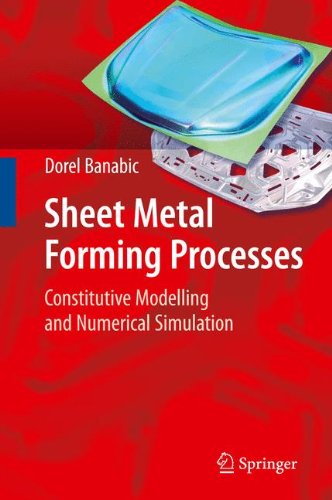

Most ebook files are in PDF format, so you can easily read them using various software such as Foxit Reader or directly on the Google Chrome browser.
Some ebook files are released by publishers in other formats such as .awz, .mobi, .epub, .fb2, etc. You may need to install specific software to read these formats on mobile/PC, such as Calibre.
Please read the tutorial at this link: https://ebookbell.com/faq
We offer FREE conversion to the popular formats you request; however, this may take some time. Therefore, right after payment, please email us, and we will try to provide the service as quickly as possible.
For some exceptional file formats or broken links (if any), please refrain from opening any disputes. Instead, email us first, and we will try to assist within a maximum of 6 hours.
EbookBell Team

4.4
22 reviewsThe book gives a synthetic presentation of the research performed in the field of sheet metal forming simulation during more than twenty years by the members of three teams: the Research Centre on Sheet Metal Forming – CERTETA (Technical University of Cluj-Napoca, Romania); AUTOFORM software-house company from Zürich, Switzerland and VOLVO automotive company from Sweden.
The first chapter reminds some fundamental topics of the theory of plasticity. A more extended chapter is devoted to the presentation of the phenomenological yield criteria, emphasizing the formulations proposed by the CERTETA team (BBC models). The sheet metal formability is discussed in a separate chapter. After presenting the methods used for the formability assessment, the discussion focuses on the forming limit curves. In this context, the authors emphasize their contributions to the mathematical modeling of forming limit curves. The aspects related to the implementation of the constitutive models in finite-element codes are discussed in the last chapter of the book. The performances of the models are proved by the numerical simulation of various sheet metal forming processes: hydroforming, deep-drawing and forming of the complex parts. The book is useful for the students, doctoral fellows, researchers and engineers who are mainly interested in the mechanical modeling and numerical simulation of sheet metal forming processes.